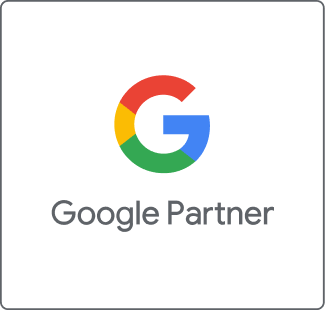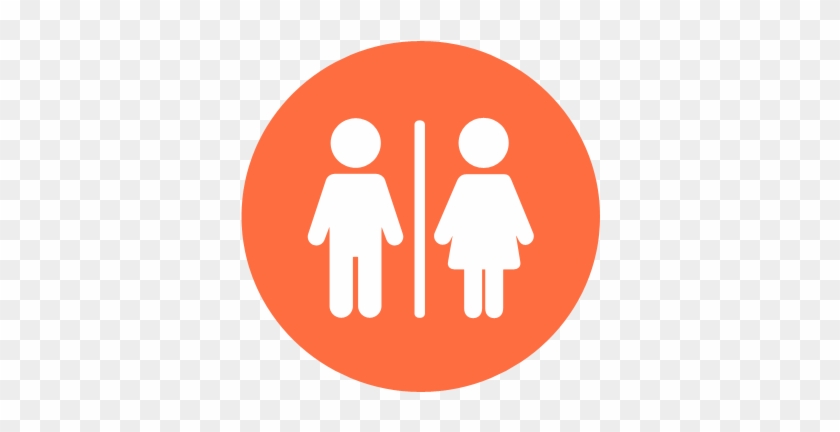Introduction
SMEs often find themselves in a catch-22 situation of needing marketing to grow and increase revenues and needing growth to pay for their marketing. Scares resources either make you efficient and superior to your competitors, or you go bust. Here are some ways of marketing and advertising forsmall businesses in New Zealand on a humble budget.
Spoiler alerts, digital marketing has made marketing for New Zealand small businesses significantly more accessible, and relatively affordable.
Advertising Options for Small Businesses in New Zealand?
Traditional advertising, like newspapers and magazines, generally doesn’t have a good Return on Advertising Spent (ROAS) for small businesses. It’s expensive to advertise in NZ Herald or NZ Life and, more importantly, difficult to track marketing activity to sales. Albeit traditional media have websites to advertise on as well.
Traditional media advertising has built a high level of trust through years of relationships with its audiences and being around forever. Maturity in business is a key component of building trust in the market. But you pay a hefty premium for this privilege.
Online Advertising
Every modern successful entrepreneur’s story begins with: “I built a website and started advertising online“. With online advertising, you can start on a humble budget, learn as you go (to a degree) and scale as sales or clients grow. You can reach people searching for products or services like yours on search engines – mainly Google or Bing. You can track people’s behaviours, follow your site’s traffic on various websites and increase marketing touch points until a prospect converts into a customer or client.
Assuming you have a viable service or product, online marketing is about finding qualified audiences who fit your customer personas and advertising to them with engaging adverts.
You can track your website’s audiences, and remarket to those who show interest through engagement. Remarketing happens when interested audiences see your adverts on Google partner websites, YouTube, Facebook etc.
Online advertising has proven itself with SME’s and micro-enterprises. According to IAB NZ, digital marketing went from generating $1.1 billion in 2018 to $2.1 billion in 2022. Search advertising produced $308.9 million of the $498.4 million digital advertising revenue in Q3 in 2022. Most industries have grown their revenue via digital means. Yellow SME Report for 2023 concluded businesses investing 21-60% of their marketing budgets in digital have a higher satisfaction score of 6.5 (out of 10).
Can I Learn Digital Marketing?
There can be a steep learning curve involved, but digital marketing is built by self-taught experts. You can take courses about digital marketing, from Google Ads to social media marketing. NZIE is a highly regarded digital marketing academy by both marketers and business owners who want to handle their own digital marketing.
Remember, in digital marketing, people browse on their phones but purchase on their computers. In New Zealand, Desktop holds the largest share of total revenue, broken down by device, at 20.3% in Q3, 2022 and grew 24.8% from the previous year.
Why Do You Need an Online Advertising Plan?
Online advertising offers many benefits for small businesses, amongst which are:
- Reach – people search online for information, entertainment, finding services and products. Potential customers will not know about your business if they can’t find it in Search Engine Results Pages (SERP). You need to be reachable and discoverable.
- Cost-efficiency – Reaching customers through traditional marketing methods is often prohibitively expensive, especially for SMEs and micro-enterprises – $5000 for a Herald Ad to be glanced at by someone in an office during morning tea. With online advertising options such as Google Ads or Facebook Ads, it’s possible to reach thousands of people without breaking the bank.
The reason for this is that search engines (Google) and feed engines (Facebook/meta) build their algorithms to incentivise showing relevant and useful information – high-quality ads with engagement cost less per impression and clicks.
Cost-Efficient Realistic Advertising Options
Google Ads
Search engine advertising is designed for the bottom of the funnel, close to converting the audience. For Google Ads, you need to have a website and a Gmail account. Write your ad copies, select your keywords and ad assets and target anywhere you want in New Zealand or the world. This drives down your cost. If you’re a dentist in Wellington, generally, you want your Google ads to only show in Wellington.
New Zealand is generally a low search volume country. Therefore, you’re Google Ads campaign may require a broad match strategy.
With Google Ads, you build an audience based on the ad campaign clicks and start remarketing on Google Partner sites.
Social Media Marketing
This is mainly Facebook and Instagram advertising. TikTok is becoming very popular as well. Social media marketing is mainly about:
- Building your sales funnel;
- Having ongoing campaigns aimed at brand awareness and remarketing to target prospects in conversion campaigns;
- Creative content, photos and videos – brush up on your photo and video editing skills. This is easier now with various apps shortcutting the steep learning curve of Photoshop. According to a survey of SMBs conducted by Databox, video ads are the most effective for driving awareness and sales,
There are many other digital advertising tools. However, for a startup or a small business, Google Ads and social media marketing are the most realistic options in the first few years of your business. Both platforms are intricate enough to keep you occupied for a while.
Best Practices for Advertising in New Zealand
Know your goals
Is it traffic to your website, sales or leads? Digital marketing is a little more complicated than choosing the sales CTA button in Facebook Ad Manager and seeing the sales come through. If that were the case, everyone would have a successful business. You need to target a broad audience, see which groups engage with your ads and remarket to them.
Building a Facebook Sales Funnel
See below an overview of the steps involved in building a sales funnel on Facebook Ad Manager:
- Define Your Sales Funnel: Identify the stages of your sales funnel and the actions you want users to take at each stage. This could include signing up for a newsletter, downloading a free guide, or purchasing. You need to know which part of the sales funnel each campaign is aimed at.
- Create Your Ads: Create ads for each stage of your sales funnel that target the right audience, use the right ad format, and have an attention-grabbing headline and image. You can run multiple ads for a campaign to reduce viewers’ fatigue from seeing the same ad repeatedly.
- Set Up Your Campaign: Choose your campaign objective based on the stage of the sales funnel you are targeting, and set up your budget, ad placement, and scheduling options.
- Create Your Ad Sets: Define your target audience, budget, and schedule for each ad set in your campaign. If you have installed a pixel on your website, you can upload the audience list to your ad sets’ audience list.
- Create Your Ads: Create ads for each ad set that are optimized for your target audience and the stage of the funnel you are targeting. Run multiple ads.
- Monitor and Optimize Your Campaign: Monitor your campaign performance regularly and make adjustments as needed to improve your ad targeting, messaging, and budget allocation.
- Retarget Your Audience: Use retargeting ads to target users who have previously engaged with your ads or website, and guide them towards the next stage of your sales funnel.
A successful Facebook Ads campaign is contingent on a clear sales funnel strategy. The sales funnel guides the direction of ad visuals and ad copies.
Content is king (sorry for the cliché)
Produce and write usable and informative content. Algorithms are advanced enough to read a website and ad copy like a human. Make sure the information is relevant to your product or service. Do not keyword jam. Write naturally and with a cohesive tone. For more on content strategy, check out our blog 9 things to include when writing content for your brand.
Learn Search Engine Optimization
Any website needs organic traffic. Know the difference between on-page and off-page SEO.
On-page SEO refers to the practice of optimising individual web pages in order to rank higher in a Search Engine Result Page and earn more relevant traffic. This involves optimising both the content and HTML source code of a page, as well as its structure, to make it more search engine friendly. The primary goal of on-page SEO is to signal to search engines what your content is about and ensure it is relevant to the user’s search query.
Off-page SEO refers to the actions taken outside of your own website to improve its ranking in search engine results pages (SERPs). Off-page SEO techniques aim to improve the credibility, authority, and relevance of your website as perceived by search engines and users. Some popular off-page SEO techniques include link building, guest blogging and online reviews.
The Rise of Online Advertising for SMEs in New Zealand
Online advertising has become increasingly popular for SMEs to reach their target audience. The Internet offers a wider reach than traditional media, and at an affordable rate. Online ads are generally affordable because they can target specific audiences based on location, demographics and interests. For example, if you run a bakery that sells cupcakes in Auckland but also caters to children’s birthday parties in Wellington–you can advertise your services locally without paying extra fees for national coverage.
A 2023 report completed by Yellow on SMEs concluded that SMEs investing a portion of their marketing budgets in digital are more satisfied with their business performance.
The chat below shows how much is spent on online advertising by New Zealand businesses and predicts how they will spend their budget in the future.
How to Get Started with Advertising For Small Businesses?
Buyer Persona
Before you get started with advertising, it’s important to identify your target audience. A good way to do this is by creating buyer personas–a fictional representation of who your customers are and what they want. This will help you tailor your message and ensure it resonates with them.
Budget
Once you’ve identified your ideal customer, it’s time to set a budget. It can be tempting to spend as much money as possible on advertising immediately, but remember that most small businesses don’t have unlimited funds. Set aside enough money to test your ad campaign. There may be trial and error involved, so start slowly.
Choosing Your Platform
Where should you advertise? There are many options out there–from Facebook ads all the way down through Instagram posts. This depends on what kind of product/service you provide. Typically businesses start with Google Ads. However, one thing remains constant across all forms: you need to publish quality content in order for people to engage and click on your ads.
Conclusion
Advertising is a key component of any business’s success. Most NZ businesses rely on referrals and word of mouth, which is not how you build a prospering self-sufficient business. Developing an online advertising plan is necessary for any small business looking to reach a wider audience in a cost-efficient way. By identifying your target audience, setting goals, tracking progress, and following best practices, you can create effective advertising campaigns that generate revenue and build your brand. With the rise of online advertising for SMEs in New Zealand, it’s more important than ever to stay up-to-date on the latest trends and technologies to stay competitive.


 Listed on Hotfrog New Zealand
Listed on Hotfrog New Zealand